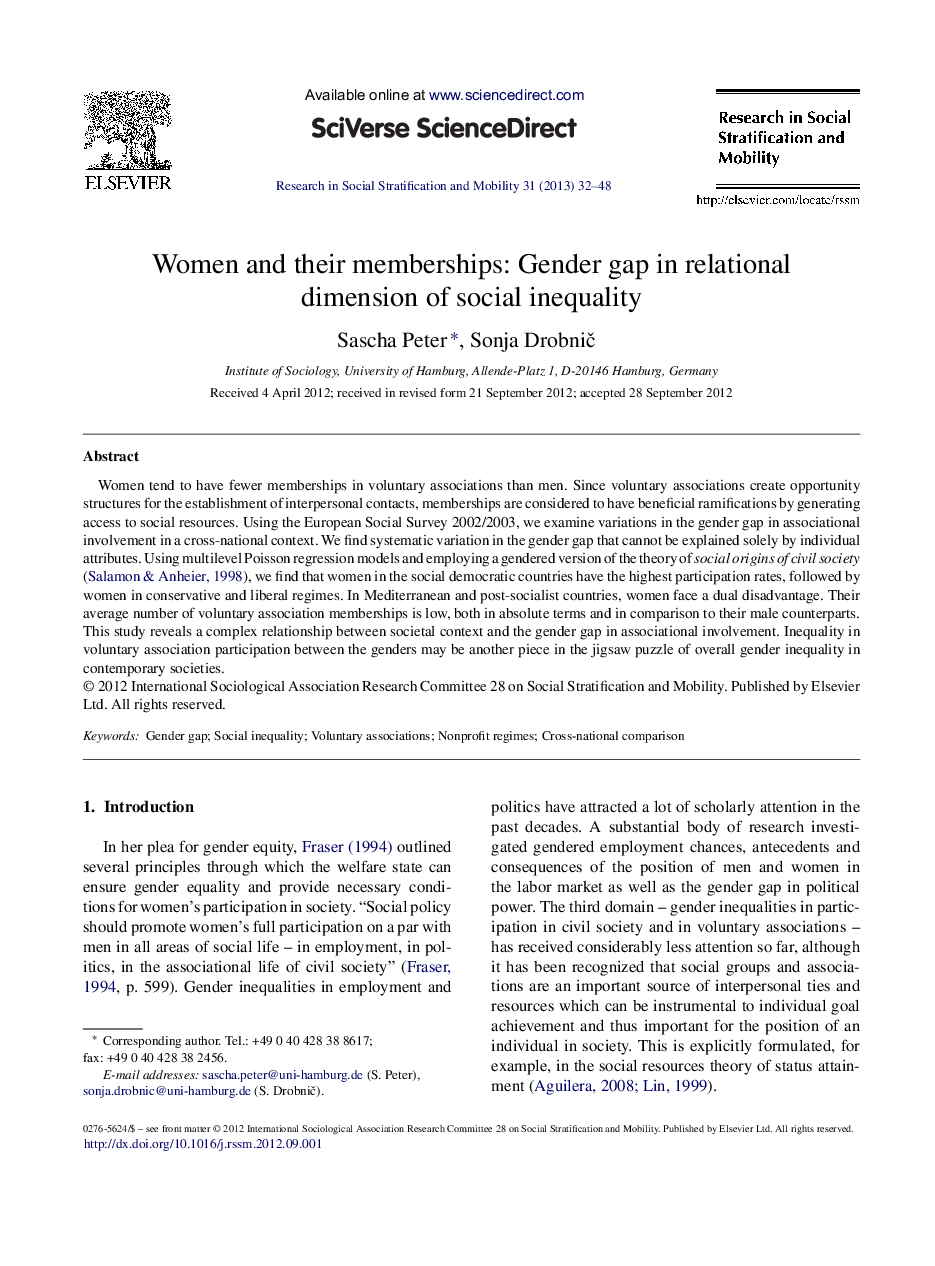| Article ID | Journal | Published Year | Pages | File Type |
|---|---|---|---|---|
| 999706 | Research in Social Stratification and Mobility | 2013 | 17 Pages |
Women tend to have fewer memberships in voluntary associations than men. Since voluntary associations create opportunity structures for the establishment of interpersonal contacts, memberships are considered to have beneficial ramifications by generating access to social resources. Using the European Social Survey 2002/2003, we examine variations in the gender gap in associational involvement in a cross-national context. We find systematic variation in the gender gap that cannot be explained solely by individual attributes. Using multilevel Poisson regression models and employing a gendered version of the theory of social origins of civil society ( Salamon & Anheier, 1998), we find that women in the social democratic countries have the highest participation rates, followed by women in conservative and liberal regimes. In Mediterranean and post-socialist countries, women face a dual disadvantage. Their average number of voluntary association memberships is low, both in absolute terms and in comparison to their male counterparts. This study reveals a complex relationship between societal context and the gender gap in associational involvement. Inequality in voluntary association participation between the genders may be another piece in the jigsaw puzzle of overall gender inequality in contemporary societies.
